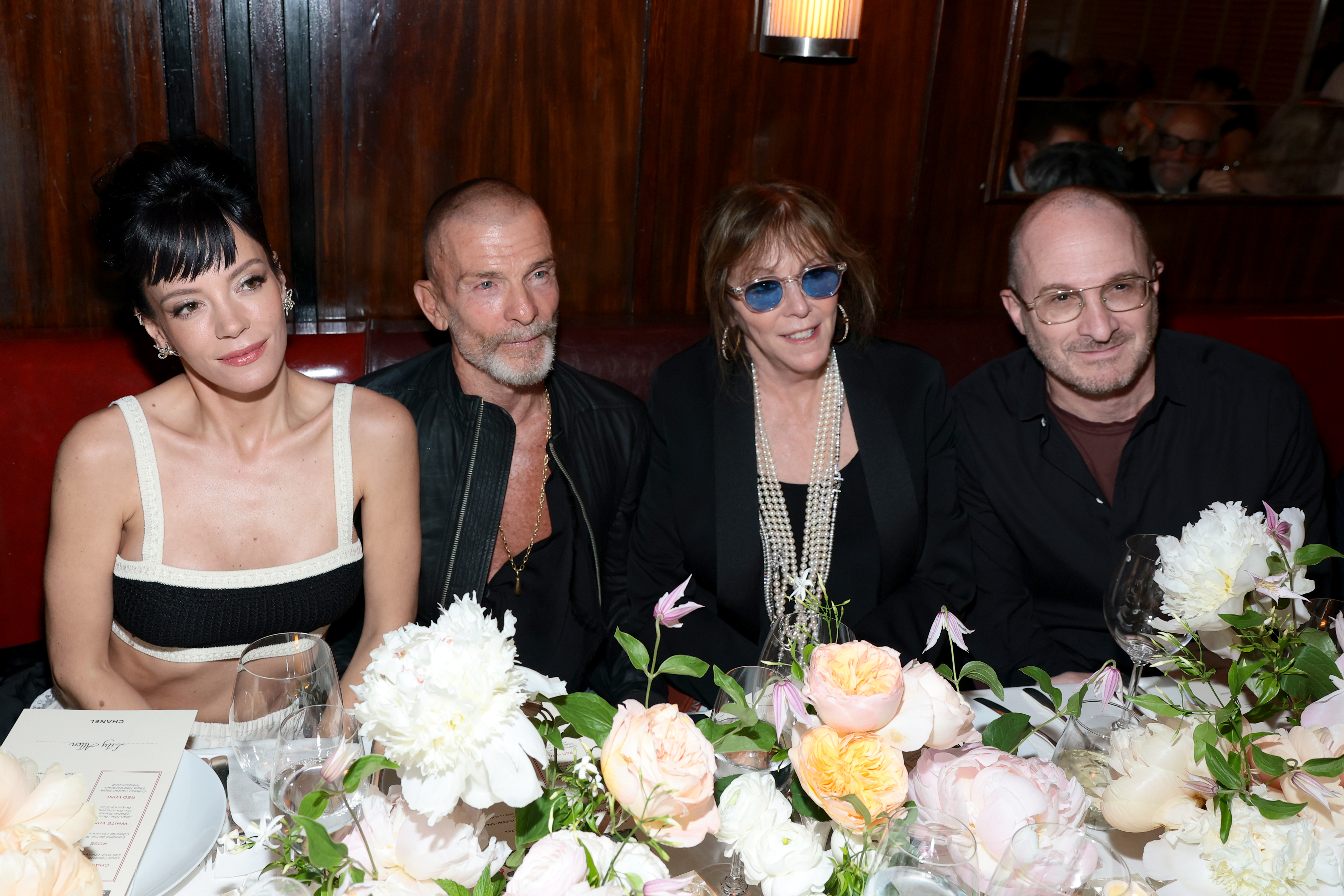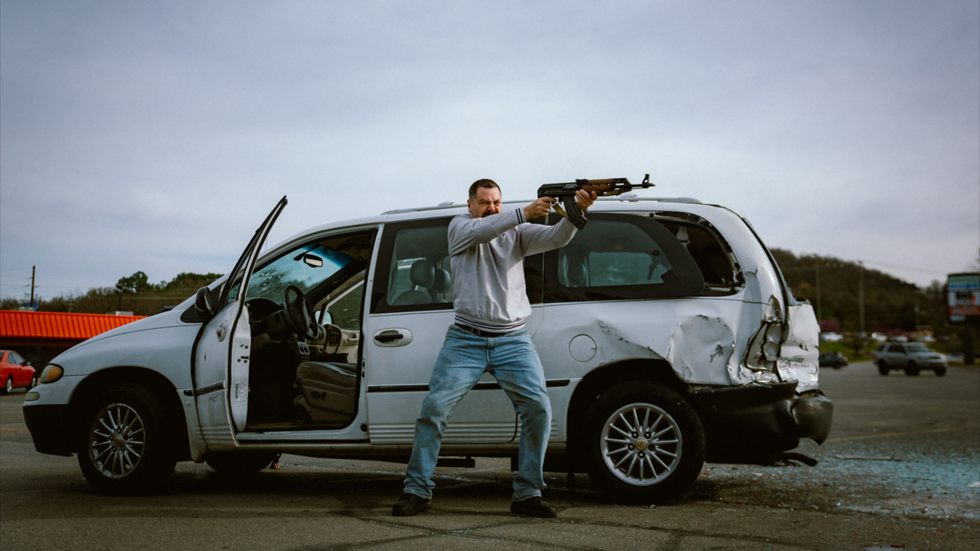The Tribeca Festival is known for its film selections, but in recent years, to compete with events like SXSW, it has expanded to include tracks highlighting audio, gaming, immersive, and musical storytelling. Acknowledging that innovative storytelling is happening in many media is a welcome development from Tribeca, which is also the first major festival to have official podcast selections and the only one to require world premiere status.
In the world of audio storytelling, once podcasts are dropped on an open RSS feed, they have to sink or swim on the many podcast platforms of the internet. They might get highlighted by the press or a podcasting convention if the producers have the right connections. But discoverability is a huge issue for both audio fiction and nonfiction alike.
Tribeca Film’s Head of Podcasts and Audio Davy Gardner hopes that scrolling through podcast listings on Apple or Spotify and seeing the laurels normally associated with prestigious films will be a game-changer for new shows, both for gaining listeners and sponsors. Since being brought on in 2021 from the indie audio drama world as a writer on “The Truth,” Gardner had to build an audio storytelling program from the ground up. In order to create the festival experience for narrative audio, he had to find jurors, create a submission process, and build selection criteria for a medium that works very differently from film.
IndieWire sat down with Gardner to find out how he built the audio track, what’s different this year, and how he aims to get all kinds of creatives interested in audio storytelling.
This interview has been edited for length and clarity.
IndieWire: How did Tribeca get into having an audio track? And also, how has that audio track changed over the couple of years, now that you’ve had it?
Gardner: The program started in 2021, and I was brought on in 2022, and very much in line with Tribeca’s overall mission, this was a way to reach out to a new group of independent producers, narrative producers who had a discoverability problem, and fundamentally a festival is a place to discover. So it was sort of a match made in heaven.
You mentioned the podcast discoverability problem, so what have you seen being a Tribeca selection do for a podcast, or what do you want it to do?
Tribeca isn’t an awards show. It is a festival. It’s an ongoing relationship, and what we’re trying to do, and what we have successfully done is, you know, I work throughout the fall, pairing creators and our official selections with creator-friendly networks who might like the story, or whose projects might fit with their slate. We’ve had 16 official selections that have gone on to get [podcast network] distribution. Two of them already have TV adaptations in the works, and in a pretty short amount of time. We’ve seen that it’s working more and more.
And these days, creative development executives from all kinds of companies are coming to me before the festival events, and before the official selections premiere, to ask me, ‘Which of your selections have distribution, which don’t?’ and it is an exciting moment to see that happen. And seeing podcasters on the red carpet, I think, is meaningful in signaling to the rest of the media landscape that this is an art form, and it should be taken seriously, and it should be paid attention to for financial reasons and artistic reasons.
For the first time [this year], we have 18 official selections instead of 16. It felt like a year where, specifically, it was more important to get more opportunities out there. There’s also the live event lineup. We’ve really curated and put up not just, you know, listening events, but something much more than that. They’re dynamic. They’re interactive. And yet, they maintain the soul of the show that we’re premiering.
How did you develop that listening in person, live narrative audio event experience? And how does that experience differ from how a normal film festival works?
There’s no formula. Every audio event has to be different, and I often think about what is the piece of this that I found really innovative. And then I take that and try to translate it into a live setting.
So for example, one official selection live event we did this year is “Hamlet,” an audio adaptation of “Hamlet,” that happens entirely from the perspective of the character. So you’re seeing, or you’re experiencing the play from the perspective of Hamlet’s unraveling psyche, you know, as if it’s your own. And interestingly, you might think, okay, “Hamlet,” that’s the easiest to dramatize, you know. That’s the easiest thing to put on stage. And yet for that one, we’re doing a headphones event, where everyone in the 99 seats is listening to the first episode on headphones, because what was so interesting about that for me, when I was listening to it as an audio drama piece, is that it was a new way to experience Hamlet’s internal thoughts. It needs to be sort of in the head of the audience. And after that, we’re opening it up to a conversation, we meet the cast and creative team.
But it was a funny sort of flipping of expectations of how we might stage that. We also have musical performances from “Broken Record.” We’ve got “The Memory Palace,” which has live readings and performances from Carrie Coon and Lily Taylor that we’re really excited about. So I think we needed to have that live element.
Lauren Shippen had a premiere two years ago with us, where we listened to the first episode with sleep masks that we gave to the audience, and then for the second episode, Lauren and the cast were on stage and did a live script reading. And we’ve experimented with live sound design, too. I think it’s a fallacy that audio can’t be experienced in person together, communally.
Especially because if you think about it, what is a music concert? It’s experiencing audio, live, together. Yes, there’s the visual component as well, but we do it with music all the time.
All the time. Exactly, it’s really perceptive that you say that because our shows have this feeling of like —when we did “Modern Love” live, I remember everyone in the audience just had — it was “Modern Love” with Kim Cattrall. I booked Kim Cattrall because it just felt like such an interesting thing for the show, but everyone in the audience was almost — it’s almost like they were friends in that sort of concert way of like we all band together, you know. And Anna Martin, the host, was like, I have never seen my audience, and it is so fun to look out and see who they are.
AI is the big, hot topic right now, and I saw that there is a live event premiere for a podcast that uses a chatbot, Audible’s “What Could Go Wrong?” What was your thought process behind including that premiere? And what do you have to say to any artists who would be taken aback by that?
First, to artists, I would say that if you are an artist, you cannot be replaced by AI, full stop. Second, about that show, it has a meta element. But it is ultimately about the potentially disastrous effects of AI. It’s literally called, “What Could Go Wrong?” So, to people who have similar questions about that show, I would suggest they attend the event. That is what a festival is about. This is curated by human beings and festival goers. The audience makes Tribeca what it is, and they are people who are open-minded and excited to see premieres that no one has seen before, that they may or may not like, and then to get to talk about them. And that’s an exciting thing. This is a specifically non-algorithmic space, and within that space might be the only place where we can really have difficult conversations like that.
I appreciate that it is an artistic conversation about it, rather than an industry panel conversation about it.
I don’t do any panels. We don’t have panels about the industry at Tribeca. A lot of people ask me for them, they’re all great ideas, and I would love to have them all. But what I want is a festival where we showcase the actual art, and then we go out to a bar after and talk about it. We don’t have to have a lanyard with your job title on it, you’re just people, making friends. You hear these stories of people who met at Tribeca, and then go on to collaborate and make something incredible. So that’s the point.
I would also add that one thing I did not expect going into this job, which has meant more and more to me over the last four years, is that I’m part of a team of programmers, and they represent all different kinds of media. And because of that, it’s a space where podcasts can not only do their live episodes or premiere for the first time, but also where you get short film people coming to those shows, games people getting into it, and it can be exposure for the whole industry to other industries. They meet each other at the parties and at the rooftop cocktails. That’s a really pretty unique thing, and I like that. It’s sort of inclusive in that way.
Since we talked about all these innovations for presenting narrative audio live, are there any audio innovations amongst the selections themselves that got you really excited this year?
Come to the live events that we put on for the official selections, because part of the guidance I give to our jurors and to our listening committee is that we’re specifically looking for innovation. We’re looking for something that is non-formulaic, not something you’ve heard before, or that’s a “non-risk” financially. We’re looking to highlight things that are made, again, because they needed to be made by these artists.
Thank God! Thank God, someone’s highlighting that.
I’m really lucky. It’s Tribeca. And they have a long history of doing that. I don’t want to leave this job ever, you know. And It’s interesting to me that people are like, can narrative audio survive while everything is pivoting to video? Because I just think about narrative audio existing since the dawn of radio. I don’t think it’s going anywhere.
Not even the dawn of radio. It has existed since the dawn of storytelling, which started as oral storytelling.
100 percent. It’s not going anywhere, which is why I’m just so not worried about that question.
The Tribeca Festival’s full audio live event lineup for this week, plus information on each of the official selections, is available here.



